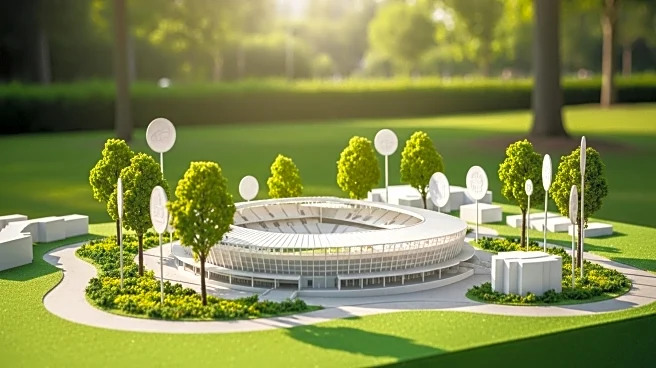What is the story about?
What's Happening?
Leyton Orient Football Club, in collaboration with Waltham Forest Council, is exploring plans for a new stadium as part of a privately funded regeneration project in East London. The proposed development aims to replace the club's current home at Brisbane Road with a larger venue to support its ambition of playing in the Championship. The project will also incorporate leisure and community facilities, enhancing pedestrian and cycling links, and supporting culture-led regeneration. A feasibility study is set to begin to identify a suitable site, with public consultations planned throughout the process. The club's 150th anniversary in 2031 is targeted for the stadium's completion, which is expected to meet zero-carbon standards.
Why It's Important?
The initiative is significant as it represents a long-term regeneration opportunity for East London, potentially boosting local economy and community engagement. The new stadium is expected to create jobs and increase investment in the borough, aligning with Waltham Forest Council's objectives. It also promises to maintain affordable football in the area, providing lasting value for the community. The redevelopment could release land for affordable housing, contributing to urban development and addressing housing needs. The project underscores the importance of integrating sports infrastructure with community and environmental goals.
What's Next?
The next steps involve conducting a feasibility study to identify a suitable site for the new stadium. Public consultations will be held to gather input from supporters and residents, ensuring community involvement in the planning process. The club and council will work together to finalize procurement strategies, delivery timetables, and architectural plans. As the project progresses, stakeholders will focus on meeting zero-carbon standards and enhancing biodiversity, while supporting culture-led regeneration in East London.
Beyond the Headlines
The project highlights the broader trend of sports clubs engaging in community-focused development, emphasizing sustainability and cultural integration. It reflects a shift towards using sports infrastructure as a catalyst for urban regeneration, promoting environmental consciousness and social inclusivity. The initiative may set a precedent for other clubs to follow, integrating sports with community and environmental objectives.















